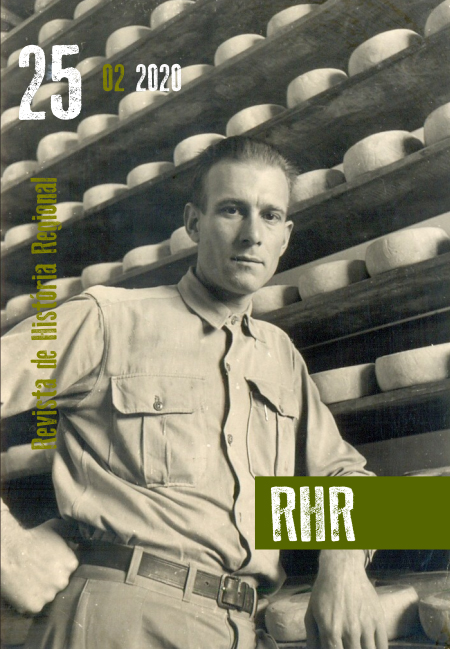História de um país invadido: pantanais entre Bororo, brasileiros, belgas e platinos (1870-1912)
Abstract
The second half of the nineteenth century brought big changes to the western spaces of the Brazilian State: territories which hadn’t been yet appropriated by the modern and capitalist paradigm became the object of national, commercial and industrial projects. From the perspective of politicians, governments and statesmen, who remotely formulated the guidelines for the occupation of wilderness, nature was seen, above all, as a resource for the economic development of the nation. Vast areas of pantanais would be then, incorporated into Mato Grosso and Brazilian territories through mapping, establishment of transports and communication networks and the institution of modern property rights. Nevertheless, native populations, driven by different logics, rejected the impositions of these new paradigms, trying to keep their dominium over their lands and communities. This paper seeks to analyze transformations and conflicts that occurred in this confrontation between local peoples, capitals and national state. In the immense fields and wetlands of Upper Paraguay River, the Western Bororos would confront the colonialist urge of the Cibils Company which would associated itself to state agents and institutions in order to violently impose specific forms of interaction with nature.
Downloads
Downloads
Published
How to Cite
Issue
Section
License
Copyright (c) 2020 Alexia Helena Araujo, José Augusto Pádua

This work is licensed under a Creative Commons Attribution 4.0 International License.
Autores que publicam nesta revista concordam com os seguintes termos:
a) Os autores mantêm os direitos autorais e concedem à revista o direito de primeira publicação, com o trabalho simultaneamente licenciado sob a Creative Commons Attribution License que permite o compartilhamento do trabalho com reconhecimento da sua autoria e publicação inicial nesta revista.
b) Os autores são autorizados a assinarem contratos adicionais, separadamente, para distribuição não exclusiva da versão publicada nesta revista (por exemplo, em repositórios institucionais ou capítulos de livros), com reconhecimento da sua autoria e publicação inicial nesta revista).
c) Os autores são estimulados a publicar e distribuir a versão onlline do artigo (por exemplo, em repositórios institucionais ou em sua página pessoal), considerando que isso pode gerar alterações produtivas, bem como aumentar o impacto e as citações do artigo publicado.
d) Esta revista proporciona acesso público a todo o seu conteúdo, uma vez que isso permite uma maior visibilidade e alcance dos artigos e resenhas publicados. Para maiores informações sobre esta abordagem, visite Public Knowledge Project, projeto que desenvolveu este sistema para melhorar a qualidade acadêmica e pública da pesquisa, distribuindo o OJS assim como outros softwares de apoio ao sistema de publicação de acesso público a fontes acadêmicas.
e) Os nomes e endereços de e-mail neste site serão usados exclusivamente para os propósitos da revista, não estando disponíveis para outros fins.

Este obra está licenciado com uma Licença Creative Commons Atribuição 4.0 Internacional.

Este obra está bajo una licencia de Creative Commons Reconocimiento 4.0 Internacional.






